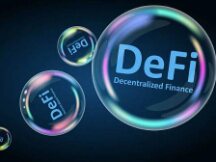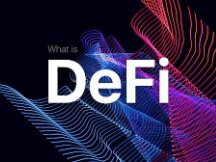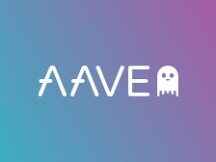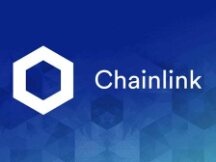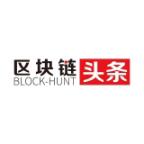Get Started with DeFi Staking Investment Strategies
One of the main functions of DeFi (Decentralized Finance) is to provide financial services to everyone connected to the Internet. Banks still make money primarily by setting lending rates and the DeFi protocol. In fact, DeFi protocol such as Uniswap, Aave, Compound, etc. return the bank the moment users close their money in the pool. These users then became trading providers for other traders who wanted to trade tokens or borrow tokens for crypto trading. This process can be called staking, and the APR (annual interest rate) is more than 0.06% of normal savings.

According to data from the DeFiRate site, the annual interest rate varies depending on the fixed currency (DAI or USDC) chosen to be exchanged. The difference between DeFi staking and savings is always evident and hence some users are making money by staking crypto assets without engaging in risky trading ventures.
Types of crypto staking
PoW blockchains require access to Chinese energy and can benefit from participation without IT investment. Whether it's the foundation of a platform (like BlockFi, nexo) or a decentralized process (like Aave), crypto staking services run on the user's computer. In addition to this, there are 3 types of competitions.
Crypto assets are locked in smart contracts for a specified period of time (funds cannot be withdrawn at this time)
For example, users would authorize the principle of placing their money in smart contracts running on BSC's PoS blockchain. These platforms rely on users to secure the network through staking processes. Validators close crypto assets and are selected by the PoS approval algorithm to create a blockchain business. The higher the value of the user's contract, the greater the likelihood that the algorithm will select the pledged crypto asset to block usability.
Crypto Assets Pledges to Become a Financial Services Provider
For example, if you hold a crypto asset on Uniswap, you can do this in 3 steps. First, visit the Uniswap liquidity pool page and click on "Link" (eg MetaMask). Then, if you choose the ETH/DAI trading partner in the “Add liquidity” option, go ahead and select the price of ETH/DAI you want to invest in. Finally, after entering the price, confirm the change in your wallet and you will see the exchange rate.
After following the above steps, the process of adding the product into the pool (token trading partner) for crypto asset collateral is complete. When other traders want to trade ETH/DAI, they enter the pool. In exchange for participating in the service, the stakers benefit from it.
Crypto tools can be reversed at any time.
In fact, this method is not promising, but you can put encrypted devices to generate interest. For example, when users deposit their crypto assets with BlockFi (the crypto company in the middle), they don't have to do anything else on their own to collect the profits. It is important to note that portions of this property may be collateralized or leased or any other function benefiting BlockFi, which the company donates for free.
Advantages and Disadvantages of Staking Crypto Assets

The transmission of data on the DeFiRate website, different devices or crypto platforms is subject to different advantages and annual interest rates. For example, a fixed investment in basic platforms such as BlockFi and Nexo would pay off once a year.
To participate in more integrated marketing, users can place their crypto assets on the blockchain they trust. In general, the more validators there are, the higher the security of the network. It is also another option for regular miners as it does not require access to special computers.
The disadvantages of this type of staking are similar to the industry. The value of unstable coins is volatile, especially for blockchain campaigns with a market value below $1 billion. If prices fall sharply, commodities will continue to fall, more so than capital gains.
Likewise, most blockchain platforms have a competition period of at least a week if users are worried about the price of crypto assets falling and want to avoid falling. Therefore, it is better for users to know the minimum downtime and other additional conditions before staking. The greater the flexibility over the duration of the contract, the lower the risk of exposure to long-term assets.
A blockchain that provides cryptographic pledges
Ethereum is currently using a similar PoW and PoS (Beacon Chain) agreement, and this transition period will last at least until mid-2022, when PoW and PoS will join forces to develop the new Ethereum 2.0. . Currently, 9.02 million ETH is collateralized on the beacon chain and the funds will not be withdrawn until the merger (BETH from centralized trading platforms receives a large discount when trading ETH).

(Diagram in Figure) The cost of inventory for each PoS crypto asset increased to an annual rate of return over shipping.
Ethereum competitors such as Solana, Cardano, Avalanche, and Polkadot are all PoS blockchains (providing staking services), and silver stakes are high in circulation. The centralized trading platform also provides collateral services for these assets. Of course, merchants can also share their personal keys and funds in a non-local custodian wallet for direct management.
Crypto Asset Management Strategy
The simplest idea is hodl (hold), which means that the best investment depends largely on the location to measure the length of the asset, which depends on the critical cost of the project. For example, Ethereum has the most powerful developers, including dApps (2888) and the most powerful network effects. At the same time, new chains are also boosted by investment protection against the backdrop of high Ethereum costs, and the ecosystem is growing rapidly.
Strategies applicable to most investors include lending and interest-bearing securities on DeFi or commodity platforms, and integration with PoS crypto assets (if the project is successful on its long-term development).The most challenging concept is DeFiyieldfarming, specifically the integration of staking and lending. For example, a trader can borrow money, then exchange the token for another token with a better price and use the token as additional credit. These multi-component strategies require knowledge of a variety of DeFi policies, tokens, and ecosystems, and should be well known to cycle “scientists.”

Scan QR code with WeChat


